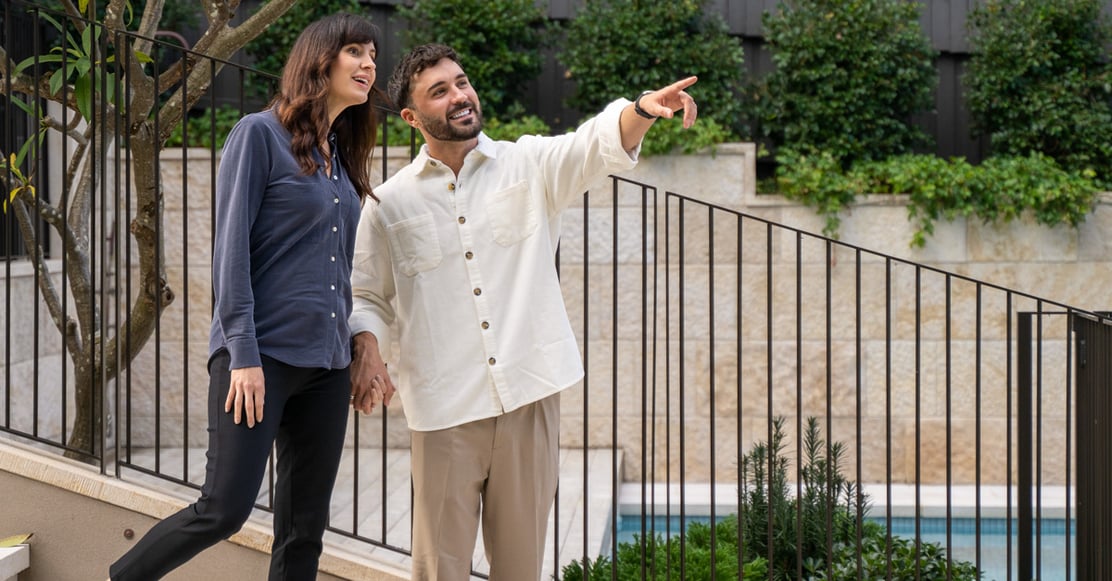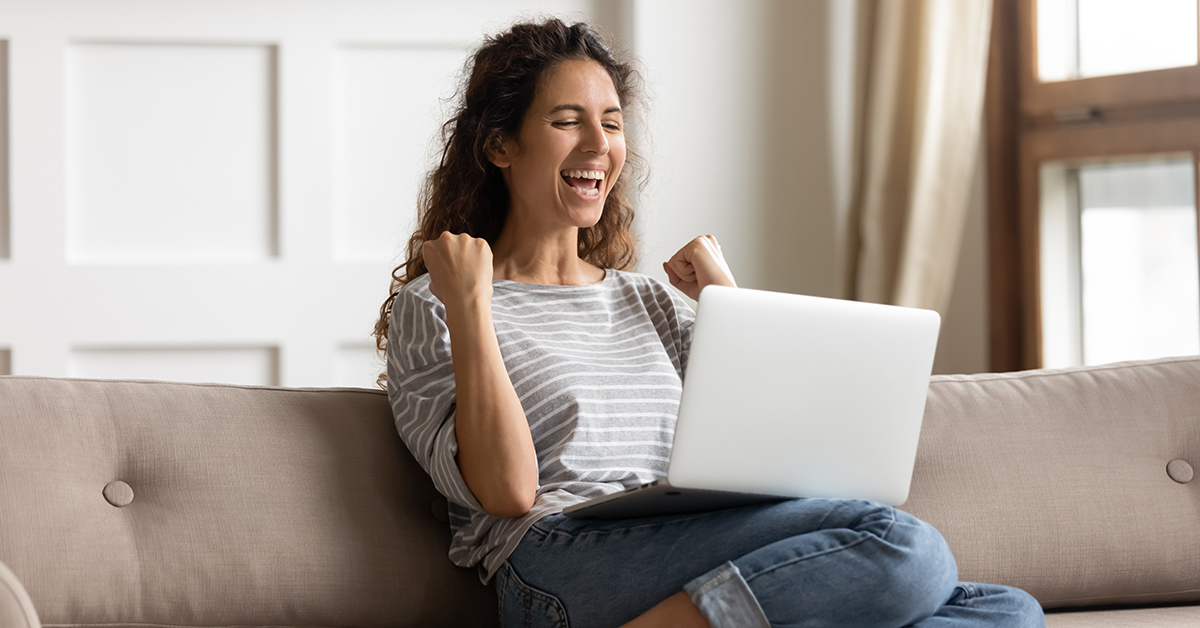The Signs You’re Ready to Buy

Buying your own home remains the ‘Great Australian Dream’. But knowing when is the right time to take the plunge and take your first steps on the property ladder is not always clear-cut.
It may be a flatmate has moved out motivating you to buy your own place. It could be you are set for a major life change such as getting married or starting a family. Or it could have started subtly with an interest in watching home decorating shows or attending local open inspections and thinking it’s time to make a move.
Whether it's a two-bedroom villa in a leafy outer suburb, a studio apartment in the city, or a rustic homestead set an acre or two, there are options all around you. It may be that you are considering purchasing a more affordable property interstate and renting it out until you can purchase closer to home.
But how do you know if you're actually ready to buy a house? Let's take a look at the things that best indicate that you are on the target to take this important and exciting step.
Key indicators
Are you ready or not?
We've dealt with a lot of people purchasing property in our time, and think these are some of the key indicators that you are truly ready for buying a home.
You've got the deposit
In this day and age, it's pretty difficult to walk up to the bank and get a 100 per cent home loan - you have to bring something to the table. Saving up for the deposit on a first property is the crucial first step to knowing you're in a good place to buy. It also gives you the leverage to secure a better deal, too.
Some lenders only require a five per cent deposit but if you are able to save more it could mean avoiding extra costs such as lenders mortgage insurance.
If you are close to your savings goal but not quite there try some simple budget hacks. These include taking sandwiches to work instead of buying lunch, limiting the number of takeaway coffees and cutting down on food delivery services. You can also save some dollars by shopping around for the best deal from an electricity provider, using free streaming services and swapping your gym membership for no-cost online workouts.
You can also boost your deposit with a First Home Buyer Grant – this is free funding from the Government to help eligible first-time purchasers. Some states also have a stamp duty concession on top of the FHOG, saving first-time buyers even more money. There are plenty of tips on how to best utilise such schemes and get into your own place sooner.
You have a regular income
Lenders need to know that you will be able to afford your mortgage repayments and this is best shown by having secure and stable employment. So, if you are asking yourself ‘am I ready to buy?’ you need to have been in your job for at least six months and have some savings behind you.
If you are self-employed, you’ll need to show you have had an ABN for two years. Lenders will also want to look at your personal and business tax returns and assessment notices.
When it comes to getting a home loan, the process can seem daunting, especially if this is your first application. You need to research what is the best deal for you and your circumstances and make an informed decision.
Your credit rating is positive
If you've taken out a credit card, opened a power bill in your name at a flat or signed up for a mobile phone plan, you'll have a credit rating. Whether it's good or bad depends on your payment!
When you take out credit in any form, you should make sure you stay on top of your bills. This ensures that you come out with a good credit score, which puts you in good stead with mortgage lenders.
To get started, request a free credit report and always check it for any errors. If you find that you have a bad credit rating, then you need to take steps to fix it. The easiest way is to contact your credit providers and clear up any defaults. A financial counsellor can also help you to manage your debt and get you back on track. After all, you don’t want your credit history holding you back from buying a property.
You know the market
If your finances are in order, you're starting to look ship-shape for a property purchase. However, that's only the first step! You have to know the market and what you can afford to purchase.
It is also important to understand what is happening in the economy and how that impacts property prices. Will you be purchasing what is a buyers’ or sellers’ market? Have you researched where hot spots are, and what your capital gains could be? Are there parks and shops nearby?
Understanding where you want to buy is crucial. Reports like the Commonwealth Bank Home Buyers Index identify where extreme buying and selling markets are, but for tailored advice, you can also contact a local LJ Hooker agent.
There are many resources that can provide insight into the performance of your local area and can be used to help decide whether it is the right time to buy a property.
You are realistic about options
It is unlikely you’ll be able to afford your dream property straight up. So, when you are preparing to buy a home, you may have to make some adjustments to your wish list. By prioritising what you really need, what can be improved later and what isn’t necessary at all, you may be surprised at how many ideal properties fall into your budget. Being ready to buy a property, often means that you are also ready to make informed compromises.
You understand this is a commitment
Remember - when you buy a home, you're in it for the long term. Typical home loans last up to 30 years, so it's a big stretch over which you should plan out your payments. Of course, interest rates and your financial situation will change over time, so there may be opportunities to refinance, change loan terms or even leverage your home into a new purchase. But it's all with an eye on the long-term. Make sure you understand what you're getting into and are prepared!
Another idea to check you are ready to buy a home is to save as if you are paying off a mortgage. Work out what would be your monthly repayments and put these aside for six months. If you can comfortably manage, then you are ready to start house-hunting.
Don’t forget about ongoing expenses such as Council rates, insurance and utilities as well as maintenance. So, make sure your sums also factor in these extra costs.
You know what you want
You don't have to subscribe to what you're told is the right type of property, because one size doesn't fit all! You might prefer an apartment, or a more compact house close to the city rather than a home in the suburb with a big backyard.
When you find the one you want, you'll feel it in your bones. If you know exactly what you want, have the funds to get it, and understand the process, we'd say you're ready to move forward and buy!
To help make the buying process as smooth as possible for you, the team of experts at LJ Hooker have put together comprehensive resources that walk you through each step towards buying your dream home.
DISCLAIMER - The information provided is for guidance and informational purposes only and does not replace independent business, legal and financial advice which we strongly recommend. Whilst the information is considered true and correct at the date of publication, changes in circumstances after the time of publication may impact the accuracy of the information provided. LJ Hooker will not accept responsibility or liability for any reliance on the blog information, including but not limited to, the accuracy, currency or completeness of any information or links.
Share


